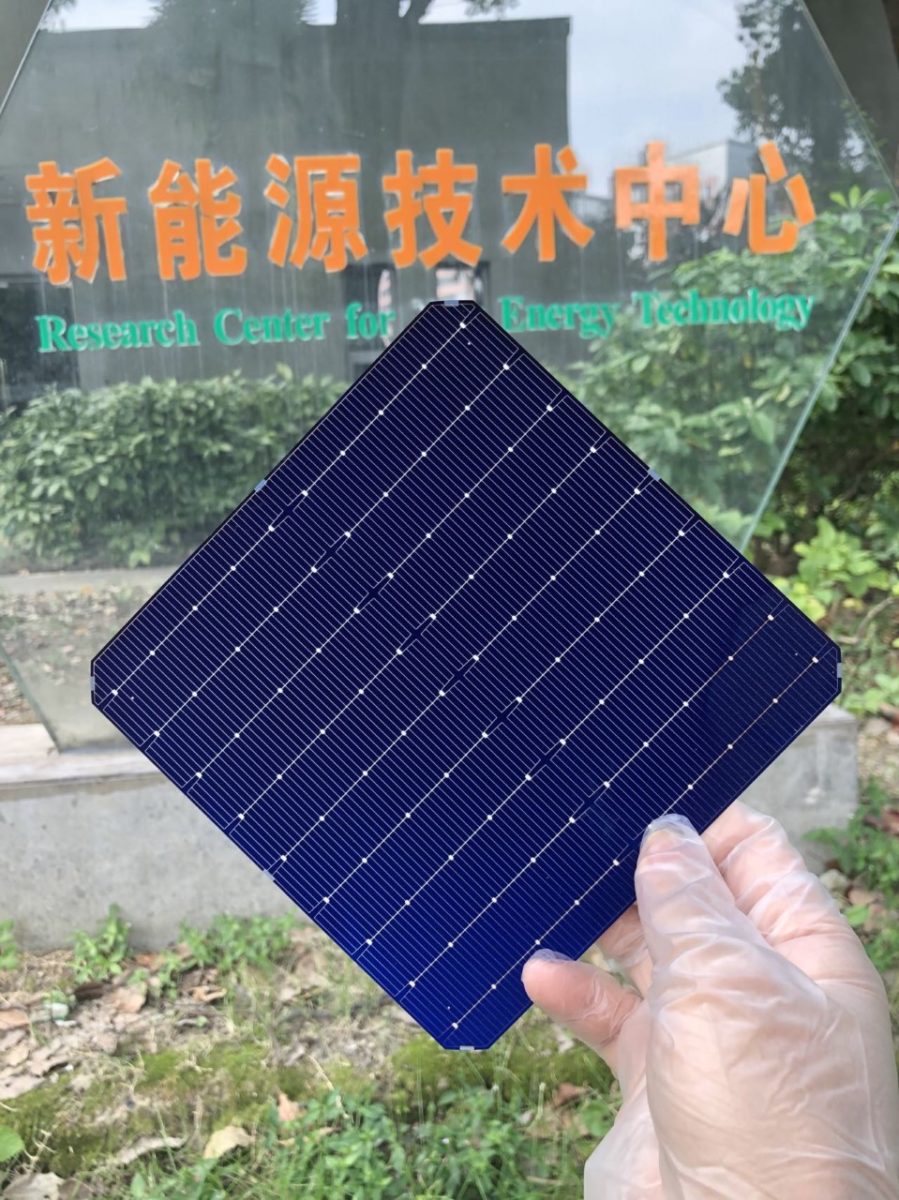From pv magazine Global
Scientists from the Chinese Academy of Sciences (CAS) have built a heterojunction solar cell with highly conductive boron-doped hydrogenated amorphous silicon (a-Si:H) thin films. They claim it reduces fill factor losses to a minimum.
“Our cells were conceived for applications in large-scale solar modules,” researcher Wenzhu Liu told pv magazine.
The scientists fabricated the cell with a 244.63 cm2 Czochralski n-c-Si wafer provided by China-based Sichuan Yongxiang Silicon Material Company. They used light soaking to improve the dark conductance of the a-Si:H films, in order to help the diffusion and hopping of weakly bound hydrogen atoms, resulting in efficient boron tetrasilicide (B−Si4) doping.
“The light-soaking devices are made of LED arrays and were developed by Chinese companies at our request,” Liu said.
The scientists have found that boron doping, which stems from weakly bound hydrogen atoms, plays a crucial part in the formation of metastable hydrogen configurations in the a-Si:H films. Under standard illumination conditions, the solar cell achieved a power conversion efficiency of 25.18%, an open-circuit voltage of 749 mV, and a fill factor of 85.42%, which the scientists described as the highest values among two-side contacted silicon solar cells.
An encapsulated device was also able to retain 98.70% and 97.59% of the fill factor and efficiency, respectively, after 1,000 hours. The scientists claimed that this demonstrates high stability against extreme climate degradation factors.
The scientists described the process in “Light-induced activation of boron doping in hydrogenated amorphous silicon for over 25% efficiency silicon solar cells,” which was recently published in Nature Energy. “We participated in their design and now both the cells and the light-soaking devices will be available in the market,” said Liu.
This content is protected by copyright and may not be reused. If you want to cooperate with us and would like to reuse some of our content, please contact: editors@pv-magazine.com.









By submitting this form you agree to pv magazine using your data for the purposes of publishing your comment.
Your personal data will only be disclosed or otherwise transmitted to third parties for the purposes of spam filtering or if this is necessary for technical maintenance of the website. Any other transfer to third parties will not take place unless this is justified on the basis of applicable data protection regulations or if pv magazine is legally obliged to do so.
You may revoke this consent at any time with effect for the future, in which case your personal data will be deleted immediately. Otherwise, your data will be deleted if pv magazine has processed your request or the purpose of data storage is fulfilled.
Further information on data privacy can be found in our Data Protection Policy.